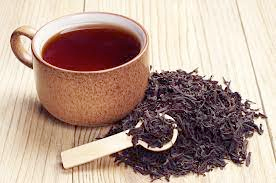Eggs: Are They All They're Cracked Up To Be?
Eggs play big part in our culture, especially in the spring. In certain religions around Easter we think of a kind of "rebirth". We also think of the fun children have coloring eggs to hide. There's more to an egg than being just a symbol of spring and the holiday. Eggs are very nutrient dense containing 7 grams of protiein, 5 grams of fat (1 1/2 grams saturated) and only 75 calories. Eggs are also full of micronutrients, B vitamins, A, D, K selenium, calcium, folate, phosphorus, and zinc. Carotenoids in eggs can help protect against aged related macular degeneration and choline can protect the brain. Eggs are extremely versatile and can be prepared for breakfast, lunch, or dinner. They can be prepared sweet or savory. Here are variety of recipes to help you add some eggs to your week! Simple Poached Eggs and Avocado Toast INGREDIENTS SCALE 1/2x 1x 2x 2 eggs 2 slices whole grain bread 1/3 avocado (usually I cut it in half but don’t use all of it. okay fine maybe I



